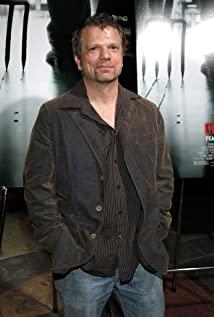Half of her fame comes from the tennis court and half from her private life.
Her actions have always been labeled as "feminist", and her "battle of the sexes" with male Internet star Bobby Riggs in 1973 evoked the awakening of women's bodies and minds through sports.
This ability has many interpretable stories and was made into a movie by Jonathan Dayton, the director of "Little Miss Sunshine".
Emma Stone, who was nominated for an Academy Award for Best Actress last year, plays Billie Jean King.
The title is a direct take on "Battle of the Sexes" to highlight gender differences and feuds.
The film cuts into the subject in two ways.
Through the story of Women's Net star Billie Jean King, the film attempts to use a sporting event to fight for equal rights for women's place in society at that time.
On the other hand, the film focuses on the private life of Billie Jean King, hoping to talk about women's rights from the perspective of "second sex" feminism, sexual freedom and other individuals.
After experiencing the baptism of media and individual social cognition, feminism has deviated, and it has long become a shield for refined egoists.
Freedom is not "do what you want to do" at all,
but "the right to refuse what you don't want to do".
In fact, feminism in general is to dissolve the various cognitive differences that society endows between men and women.
As Billie Jean King said in the film, her gender war with male contestants is not to prove that women are "stronger" than men, but to improve women's status, so that women can achieve harmony in society and family. The same rights as men.
The motive for her actions is actually quite simple.
Tennis champion Billie Jean King found that the new tournament prize money for women is only one-tenth of that for men, but in fact, according to viewership and attendance, women's tennis matches are actually no worse than men's.
So Billie Jean King broke away from the U.S. tennis world and set up a women's tennis tour to compete with the U.S. Tennis Association.
This is where the story begins.
At this time, the top men's tennis player in the 1940s, Bobby Riggs, who was inducted into the Tennis Hall of Fame in 1967, began to pay attention to Billie Jean King's every move.
In the film, Bobby Riggs is played by Hollywood actor Steve Carell. Steve Carell, who has come all the way with "Forty-Year-Old Virgin", has already become a showman, and the comedy is in full swing. Seamlessly connected, any role can be brilliant under his acting skills.
In "Battle of the Genders," you don't see Steve Carell at all, he's Bobby Riggs himself.
Bobby Riggs is an oddball, both in reality and in film.
He was supposed to enjoy his old age, fame and money, but he couldn't settle down because of his gambling addiction.
In the film, the character logic given is not only addicted to gambling, but also mentally out of balance by the wife who is in charge of money at home.
Unable to accept the strict control of his wife, he designed a series of events against female tennis players.
He first took a fancy to Margaret Court, who defeated Billie Jean King, and earned enough attention with a $30,000 bonus. This battle was called the "Mother's Day Massacre" by the media.
The US Open Association also hyped up, proving that men’s players deserve higher bonuses, in order to suppress the newly established Women’s Open Association.
Seeing the bad situation, Billie Jean King rushed to the appointment. The "Battle of the Sexes" bonus amounted to a staggering $300,000, and the amount of peripheral gambling skyrocketed.
This game has been given too much meaning.
Billie Jean King fought for equal pay for women, so that women were no longer just wives in the kitchen and bed.
Bobby Riggs embraces masculinity chauvinism and promotes masculinity everywhere. Even many men think that macho propaganda is too much, and professional women even denounce him as a clown who can't wait to strangle him.
The film almost realistically reproduces Bobby Riggs in a state of inflation, taking commercials everywhere, relaxing his training, and relying on drugs to maintain his physical state.
The Battle of the Sexes in 1973 drew an audience of 30,000 people and an estimated 90 million people watched the telecast.
As a result, the steady Billie Jean King beat Bobby Riggs.
The absence of this match has a profound impact on women's tennis, and it has improved women's social status.
Billie Jean King has repeatedly emphasized that women are not trying to prove that they are biologically stronger than men, but just feel that they should have the same rights as men in society.
Equal pay for equal work, men's jobs women can do, and possibly better.
Of course, this battle of genders, in addition to social significance, also explores the freedom of women's personal life.
Director Jonathan Dayton talked about the motivation for the film,
"We love tennis, don't get me wrong, But it was the love story that drove us to make this." (We love tennis, but don't get me wrong, it's in the play Love stories move us.)
And around the battle of the genders, in addition to the Tennis Association and that game, there is the Billie Jean King love story.
This is where the film puts the most soft light on reality.
The first encounter between Billie Jean King and the hairdresser Marilyn was extremely fragrant, and a few strokes of the hair created a secret pleasure no less than an intracranial orgasm.
The first exchange of bodies was also awkward, and it took a few scenes to refuse.
In the film, Billie Jean King is entangled in the relationship between his same-sex lover Marilyn and her husband. All three parties chose to forbear and live by at the peak of their careers.
As a husband, lawyer, and manager, Larry can be said to be affectionate and righteous to his wife. The two met in college. Only a few years after their marriage, Billie Jean King discovered his homosexuality.
After getting to know Marilyn, the two have maintained a romantic relationship, and Billie Jean King directly hired her as a personal assistant, and the two have been with each other during the tour.
In the face of huge interests, the three are at peace with each other.
Until the end of Billie Jean King's career, Marilyn went to court directly with Billie Jean King after the breakup, demanding alimony.
And Larry also had a tense relationship with Billie Jean King because he was dissatisfied with the aborting of the fetus in his womb.
However, Larry still estimated that the couple had a fight, and finally stood by Billie Jean King's side and spent a long legal dispute with her.
After winning the lawsuit, the two divorced peacefully.
Billie Jean King fell in love with her doubles same-sex partner, and they have lived together for 30 years.
And Larry remarried, had a child, and the two had a good relationship. Larry also made Billie Jean King the godmother of his child.
In the film, there are suspicions of glorification for all three, especially Marilyn, who is metaphorically portrayed as Billie Jean King's pursuit of gender equality and the embodiment of sexual freedom.
Under the siege of her husband, family, society and fans, Billie Jean King chose to suppress his love and never dared to make it public.
Before the battle of gender, she chose to go to the battlefield alone, and after the game, she sorted out her emotions alone. The film highlights her great side, but at the same time, it is also ambiguous and concealed in her handling of her personal desires and greed. On the one hand, it is to bear the pressure for women's rights in society and
embark on a "gender war" ; The out-and-out "gender war", women's status in society, women's choices in personal life, gender, how much repressive things have women been endowed by society and culture? As a social construct and a kind of symbolic reference that is beneficial to men, how many obstacles does the symbolic reference interpreted under the patriarchal mechanism bring to women themselves?
And this gender war is undoubtedly a reinterpretation of what a "female" is from the perspective of women themselves!
Today, decades later, the battle of the genders is still relevant.
At the 74th Golden Globe Awards, the legendary actress Meryl Streep, who won the Lifetime Achievement Award, still proposed at the awards ceremony that actresses should be "equal pay for equal work", because Hollywood superstars ranked 10th in terms of pay than male stars. All actresses are tall, which makes Aunt Mei feel incredible.
To this end, Aunt Mei funded the establishment of a studio and sponsored middle-aged and elderly women to create films, setting an example for the social values and responsibilities of "equal pay for equal work".
Gender boundaries and differences should not become a form of oppression and power, and feminism should not become a slogan of self-serving.
Responsibilities and obligations are two sides of the coin, and one cannot be favored over the other.
Under the laws of a patriarchal society, diaosi men are a kind of male society, and women suffer counterattacks from unequal treatment.
So gender equality is indeed a social construct that benefits both sexes.
In the film, Billie Jean King asks a patriarch,
"Don't you have a mother? Do you think your mother is worse than you as a man"?
The other party was speechless.
View more about Battle of the Sexes reviews











